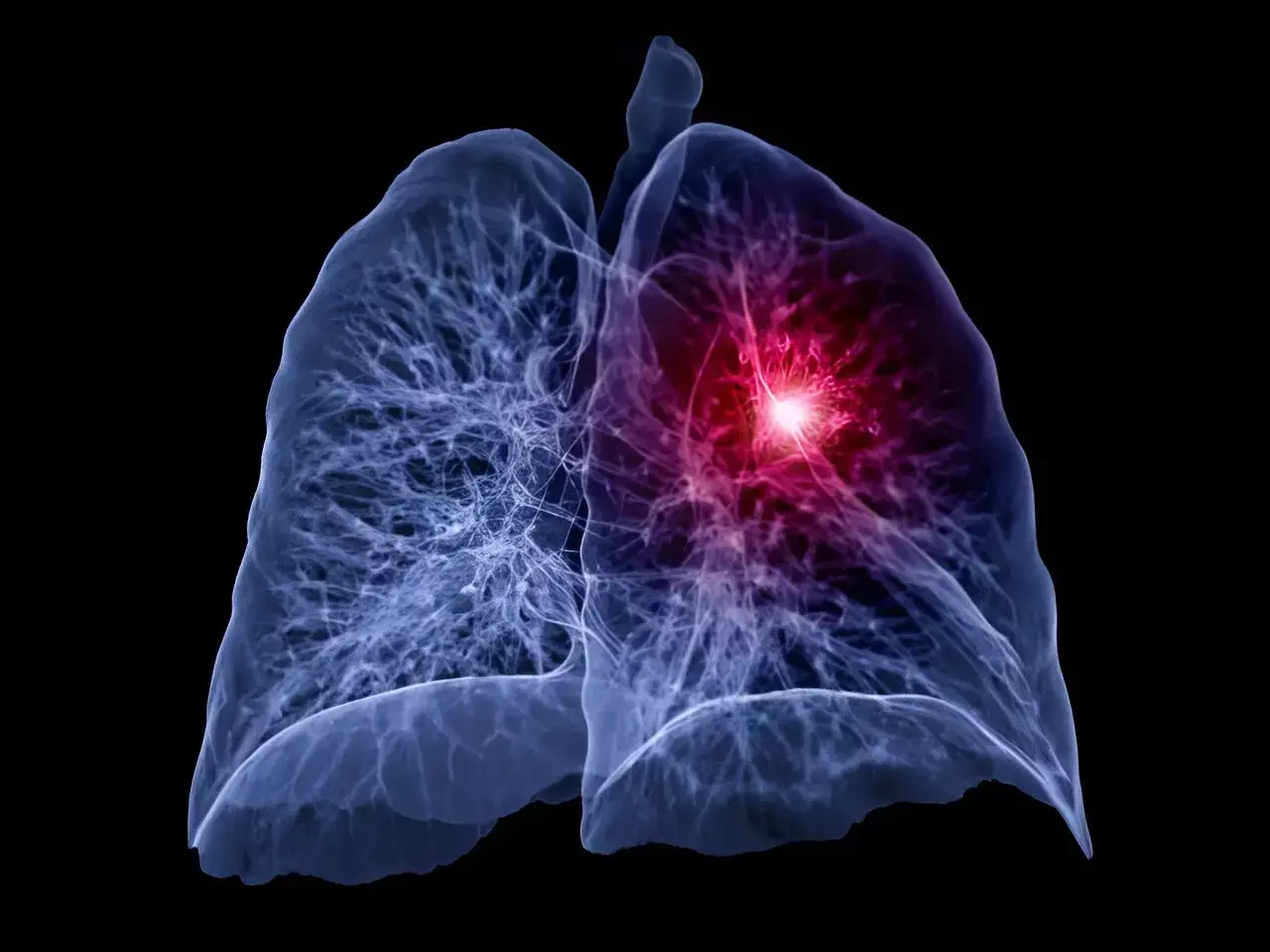- Home
- Medical news & Guidelines
- Anesthesiology
- Cardiology and CTVS
- Critical Care
- Dentistry
- Dermatology
- Diabetes and Endocrinology
- ENT
- Gastroenterology
- Medicine
- Nephrology
- Neurology
- Obstretics-Gynaecology
- Oncology
- Ophthalmology
- Orthopaedics
- Pediatrics-Neonatology
- Psychiatry
- Pulmonology
- Radiology
- Surgery
- Urology
- Laboratory Medicine
- Diet
- Nursing
- Paramedical
- Physiotherapy
- Health news
- Fact Check
- Bone Health Fact Check
- Brain Health Fact Check
- Cancer Related Fact Check
- Child Care Fact Check
- Dental and oral health fact check
- Diabetes and metabolic health fact check
- Diet and Nutrition Fact Check
- Eye and ENT Care Fact Check
- Fitness fact check
- Gut health fact check
- Heart health fact check
- Kidney health fact check
- Medical education fact check
- Men's health fact check
- Respiratory fact check
- Skin and hair care fact check
- Vaccine and Immunization fact check
- Women's health fact check
- AYUSH
- State News
- Andaman and Nicobar Islands
- Andhra Pradesh
- Arunachal Pradesh
- Assam
- Bihar
- Chandigarh
- Chattisgarh
- Dadra and Nagar Haveli
- Daman and Diu
- Delhi
- Goa
- Gujarat
- Haryana
- Himachal Pradesh
- Jammu & Kashmir
- Jharkhand
- Karnataka
- Kerala
- Ladakh
- Lakshadweep
- Madhya Pradesh
- Maharashtra
- Manipur
- Meghalaya
- Mizoram
- Nagaland
- Odisha
- Puducherry
- Punjab
- Rajasthan
- Sikkim
- Tamil Nadu
- Telangana
- Tripura
- Uttar Pradesh
- Uttrakhand
- West Bengal
- Medical Education
- Industry
Atezolizumab monotherapy bests single-agent chemotherapy among patients with advanced non-small-cell lung cancer

Atezolizumab monotherapy bests single-agent chemotherapy among patients with advanced non-small-cell lung cancer suggests a new study published in The Lancet.
Despite immunotherapy advancements for patients with advanced or metastatic non-small-cell lung cancer (NSCLC), pivotal first-line trials were limited to patients with an Eastern Cooperative Oncology Group performance status (ECOG PS) 0–1 and a median age of 65 years or younger. We aimed to compare the efficacy and safety of first-line atezolizumab monotherapy with single-agent chemotherapy in patients ineligible for platinum-based chemotherapy.
This trial was a phase 3, open-label, randomised controlled study conducted at 91 sites in 23 countries across Asia, Europe, North America, and South America. Eligible patients had stage IIIB or IV NSCLC in whom platinum-doublet chemotherapy was deemed unsuitable by the investigator due to an ECOG PS 2 or 3, or alternatively, being 70 years or older with an ECOG PS 0–1 with substantial comorbidities or contraindications for platinum-doublet chemotherapy. Patients were randomised 2:1 by permuted-block randomisation (block size of six) to receive 1200 mg of atezolizumab given intravenously every 3 weeks or single-agent chemotherapy (vinorelbine [oral or intravenous] or gemcitabine [intravenous]; dosing per local label) at 3-weekly or 4-weekly cycles. The primary endpoint was overall survival assessed in the intention-to-treat population. Safety analyses were conducted in the safety-evaluable population, which included all randomised patients who received any amount of atezolizumab or chemotherapy.
Findings
Between Sept 11, 2017, and Sept 23, 2019, 453 patients were enrolled and randomised to receive atezolizumab (n=302) or chemotherapy (n=151). Atezolizumab improved overall survival compared with chemotherapy (median overall survival 10·3 months [95% CI 9·4–11·9] vs 9·2 months [5·9–11·2]; stratified hazard ratio 0·78 [0·63–0·97], p=0·028), with a 2-year survival rate of 24% (95% CI 19·3–29·4) with atezolizumab compared with 12% (6·7–18·0) with chemotherapy. Compared with chemotherapy, atezolizumab was associated with stabilisation or improvement of patient-reported health-related quality-of-life functioning scales and symptoms and fewer grade 3–4 treatment-related adverse events (49 [16%] of 300 vs 49 [33%] of 147) and treatment-related deaths (three [1%] vs four [3%]).
First-line treatment with atezolizumab monotherapy was associated with improved overall survival, a doubling of the 2-year survival rate, maintenance of quality of life, and a favourable safety profile compared with single-agent chemotherapy. These data support atezolizumab monotherapy as a potential first-line treatment option for patients with advanced NSCLC who are ineligible for platinum-based chemotherapy.
Reference:
First-line atezolizumab monotherapy versus single-agent chemotherapy in patients with non-small-cell lung cancer ineligible for treatment with a platinum-containing regimen (IPSOS): a phase 3, global, multicentre, open-label, randomised controlled study
Prof Siow Ming Lee, Prof Christian Schulz, Kumar Prabhash, Prof Dariusz Kowalski, Aleksandra Szczesna, Prof Baohui Han, et al. Published:July 06, 2023DOI: https://doi.org/10.1016/S0140-6736(23)00774-2
Keywords:
Atezolizumab, monotherapy, bests, single-agent, chemotherapy, among, patients, advanced, non-small-cell lung cancer, The Lancet, Prof Siow Ming Lee, Prof Christian Schulz, Kumar Prabhash, Prof Dariusz Kowalski, Aleksandra Szczesna, Prof Baohui Han
Dr. Shravani Dali has completed her BDS from Pravara institute of medical sciences, loni. Following which she extensively worked in the healthcare sector for 2+ years. She has been actively involved in writing blogs in field of health and wellness. Currently she is pursuing her Masters of public health-health administration from Tata institute of social sciences. She can be contacted at editorial@medicaldialogues.in.
Dr Kamal Kant Kohli-MBBS, DTCD- a chest specialist with more than 30 years of practice and a flair for writing clinical articles, Dr Kamal Kant Kohli joined Medical Dialogues as a Chief Editor of Medical News. Besides writing articles, as an editor, he proofreads and verifies all the medical content published on Medical Dialogues including those coming from journals, studies,medical conferences,guidelines etc. Email: drkohli@medicaldialogues.in. Contact no. 011-43720751


